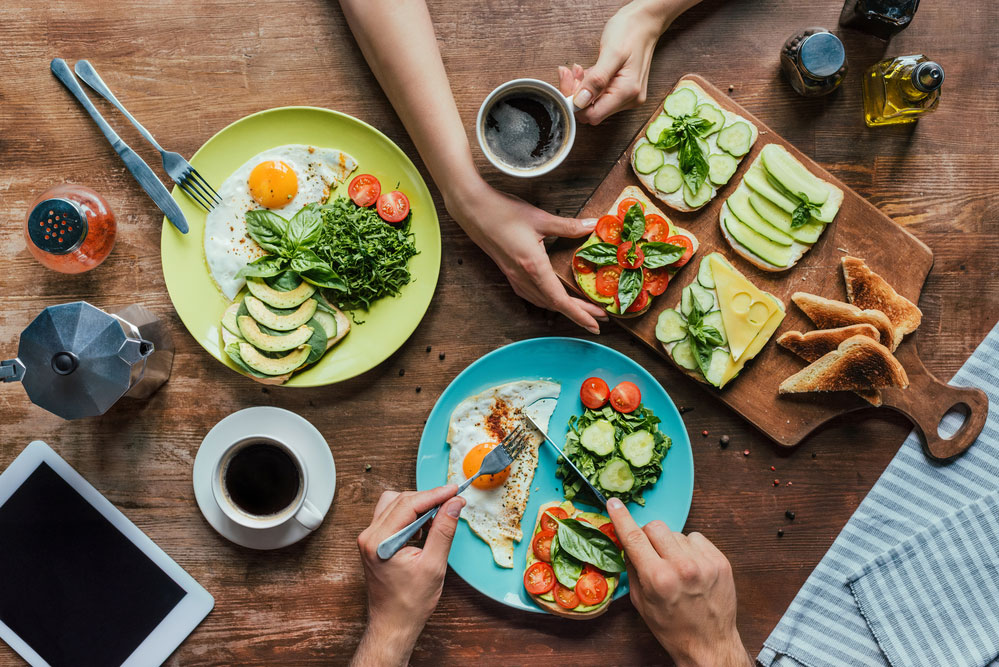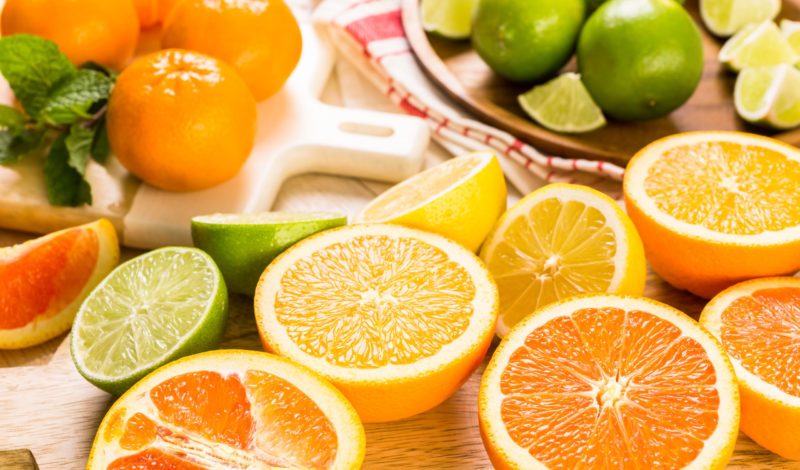In everyday life, everyone comes into contact with a multitude of pathogens. It is the task of your body's own [...]

Support muscle building through proper nutrition
You’ve been lifting weights in the gym for weeks, but the muscles just won’t grow? In this case, your diet is probably going to put a damper on it. BIOMES tells you how the right diet for building muscle looks like.
Nutrition and muscle building – what nutrients does your body need?
Muscles need nutrients, but not just any nutrients. In particular, they need protein. But a sufficient amount of carbohydrates and a selection of the right fats are also important.
Proteins play a major role in muscle building. With good reason, because your muscles are made up of protein building blocks called amino acids. If you do not take enough protein, your muscles will break down: So you lose muscle mass.
Even under low physical strain, your muscles need proteins to regenerate. Therefore, a protein-rich diet is the basis for muscle building. Protein-rich foods are among others:
- Fish
- Meat
- Legumes
- low-fat curd
The good news is that fat doesn’t necessarily make you fat. If you eat the right fats, you will give your body, especially your muscles, a training advantage. You should avoid fatty acids and trans fatsthat lurk in chips, sausage, fast food and convenience foods. Good fats include the polyunsaturated fatty acids. And you can find these for example in:
- Avocados
- Nuts
- Fish (e.g. salmon)
- Vegetable oils such as rapeseed oil
Energy source number one is carbohydrates. They are involved in almost all metabolic processes. That sounds quite good – actually. Unfortunately, there is a catch: we store carbohydrates in depots. If these are not completely emptied, the body converts the excess into fat and stores it.
Therefore you should not overdo it with the diligent energy suppliers. But it’s not only a question of “how much”, but also of “what”. If you reach for complex carbohydrates, you can boost your muscle build-up with your diet without simultaneously filling your fat stores. Because the body absorbs complex carbohydrates slower than simple carbohydrates. Complex carbohydrates are mainly contained in the following foods:
- Whole grain products (e.g. whole grain oat flakes, bread, pasta)
- Legumes
- Fruits and vegetables
Caution is required with regard to the “bad” carbohydrates, which are contained in large quantities in white flour products, sweets and convenience goods. Their relatively high sugar content makes your blood sugar level shoot up quickly.
What role do vitamins play in nutrition for muscle building?
The strong trio – proteins, fats and carbohydrates – is indispensable for training. A balanced vitamin supply provides the necessary fine-tuning when building muscle by diet.
Vitamin B1 stimulates the carbohydrate metabolism If the B1 reserves are exhausted, your body produces more lactic acid and is more quickly depleted. Good sources of vitamin B1 are meat, sunflower seeds, oatmeal and nuts.
Vitamin B6 gets the protein and carbohydrate metabolism going. Particularly large quantities of this vitamin are found in soybeans, bananas, avocados, nuts and oatmeal.
Vitamin C accelerates wound healing and strengthens the immune system. At the same time it banishes free radicals from the body, which are released during intense physical exertion. Broccoli, kale, paprika and sorrel are rich in vitamin C.
Vitamin E also contributes to the defence against free radicals and the strengthening of the immune system. Well suited for a vitamin-rich diet for muscle building, because they contain a lot of vitamins, are nuts, fish, whole grain products and vegetable oils.
How much of what do I need?
Anyone who wants to stimulate their muscle build-up through a diet that is tailored to this should know not only the necessary nutrients but also their recommended daily intake. For example, to build muscle, you need around 1.3 to 1.5 grams of protein per kilogram of body weight every day. But what about the other nutrients? How many carbohydrates should you take in daily? Are there enough foods with unsaturated fatty acids on your diet? And what about your vitamin C balance?
Questions about questions. Why don’t you just ask BIOMES? The INTEST.pro is a reliable self-test for the intestinal flora. Conveniently carried out from home, it gives you an overview of your intestinal bacteria and useful tips for your diet.



